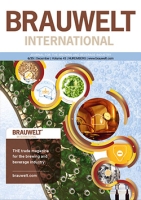Obituary – Pierre Celis, founder of De Kluis Hoegaarden, brewery died 9 April 2011, aged 86
His life is the stuff of legend: from humble milkman to world-renowned saviour of the centuries-old unfiltered Belgian witbier style. Pierre Celis had vision, determination, perseverance ... and a sure touch for picking the wrong partners.
In Belgium he is revered as the man who single-handedly took an almost extinct beer speciality to grandeur. Belgium may be the country which hails the most unusual beer styles, but it really was his Hoegaarden beer that made Belgium the beer paradise it lays claims to today.
I am not sure if it is really true that he brewed his first batch of the coriander and orange peel spiced beer in his bathtub or that he built his first brewery in a cowshed. It does not matter. It only adds to his reputation as a beer maverick, who valued quality over profits and camaraderie over corporatism.
In the 1960s he started a small farmhouse brewery which he called The Cloister (or more commonly known as De Kluis, in Flemish) in Hoegaarden, a town about an hour’s drive from Brussels. Initially, he brewed about 350 hl per year. By 1985, when his brewery burnt down, he had raised output to 75,000 hl.
Although several Belgian brewers clubbed together to help him rebuild as was the custom in those days, Mr Celis did not get on with his majority backer, the brewer Artois. Only two years later, he cashed out.
In 2005, Mr Celis explained his reason for selling out to the brewer of Stella Artois: “I needed 280 million Belgian francs to rebuild but I only got 40 million from the insurers. The banks wouldn’t help but then Stella Artois offered to invest in return for 45 percent of the shares.”
At an age when others retire to tend to their flower beds, Mr Celis decided to take another chance at brewing. Not in Belgium, mind you. In 1992 he opened a brewery in Austin, Texas, and continued to do what he knew best: brew beer.
True, he could afford to. He must have made a neat sum of money from the sale of his 300,000 hl Hoegaarden beer brand. Still, it took some daring to launch Belgian-style beers in the U.S., which was not quite the beer-lovers’ Eldorado it is today. About 20 years ago, the craft beer movement was tiny - a genuine niche where homebrewers gone commercial suffered from all kinds of teething problems.
The complexities and absurdities of the U.S. beer business, not least the Three-Tier-System, were daunting. Although Mr Celis seemed unfazed at first, he soon found out that in order to gain traction and have his beers distributed more widely he needed a partner. He thought he had found one in Miller Brewing. In 1995 Miller bought a majority stake in the Celis Brewery, as small, local brews became trendy, and later purchased the Celis family’s minority interest in the business.
Experience should have told Mr Celis that small brands don’t fare well in big corporations. In 1999, the Austin brewery had 10 employees and brewed 15,000 barrels (18,000 hl) beer, a tiny fraction of Miller’s overall 1999 output of 44.1 million barrels.
In 2000, when Miller closed the Austin brewery and sold the brand name to the Michigan Brewing Company, his daughter Christine resigned as president of the Celis beer business.
Mr Celis, saddened by it all, still saw Miller’s point: “For a big, big brewer like Miller, it’s hard to sell special beer. Special beer you sell more like wine, from the color or the taste and the aroma. [...] The quality was good. Every year we had gold medals, silver medals.”
Within the U.S. craft beer industry, Mr Celis was seen as a master brewer and purist. It was said he settled on Austin mainly because the city’s limestone created the perfect water quality and provided the high standards demanded by him.
Even if Mr Celis didn’t launch the U.S. craft beer movement, he certainly inspired many small brewers to do something different. That’s what he will be remembered for.
Authors
Ina Verstl
Source
BRAUWELT International 2011


